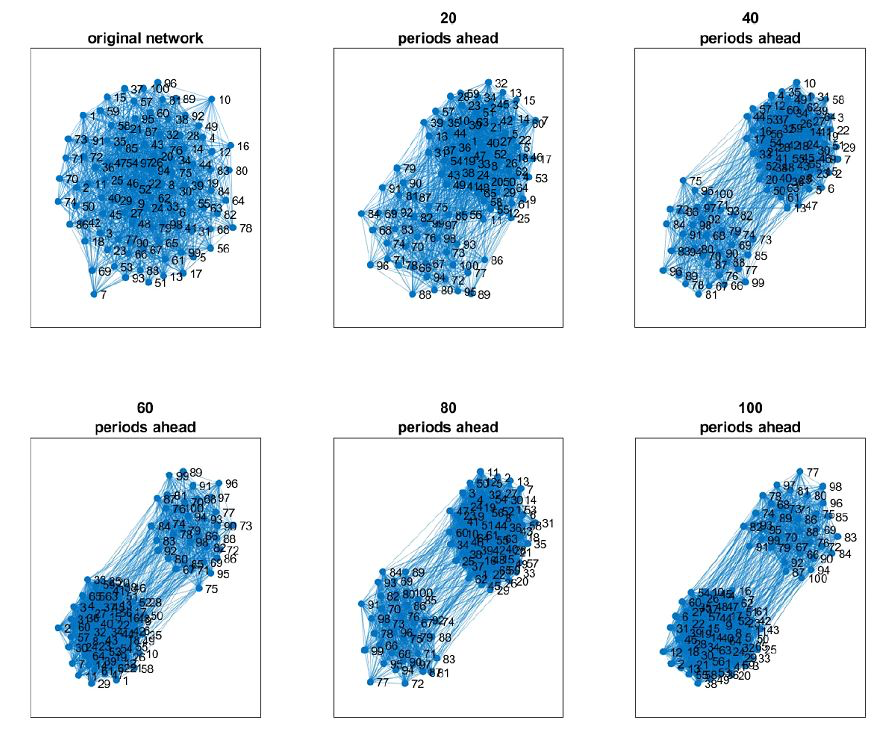Social media networks have proved to be fertile ground for the rise of populism, providing a mostly unfettered space for polarising discourse and spread of misinformation. Around the globe, the rise of populism has made political resilience and stability increasingly challenging.
Help may come from an unexpected partner: for the first time, researchers in finance and economics are using a combination of models and theories from finance, robotics, economics and natural sciences to quantitatively study the data linked to the increase and pervasiveness of populism in social media.
“A key goal of our project POPULISM is to invent handy quantitative methods for studying how people’s sociopolitical values today affect the way they connect in social media, and how the way their connections evolve will affect the evolution of people’s sociopolitical values in the future”, explains Prof Christos Koulovatianos, Professor in Finance at the University of Luxembourg.The knowledge created may very well lead to building resilient policies against misinformation, bias and polarisation.
Populism defined
“In our study we are focusing on two key aspects of populism, the polarisation that it induces, essentially creating a division between ‘the elite’ and ‘the people,’ as well as the tendancy to ignore facts, reality and expert opinions,” says Prof. Koulovatianos, Professor in Finance at the University of Luxembourg.
Together with Profs. Christopher Rauh from the Barcelona School of Economics and Carsten Schroeder at the German Institute for Economic Research, they pursue an ambitious goal: to provide consistent mathematical applied-theory models and statistical methods that can both track these two tendencies inherent in populism and analyse their determinants over time.
‟ We hope to ultimately suggest policies to battle the risks and perils of poor collective decision making. Some examples include threats to democracy or public health due to the spread of misinformation.”
Head of DF, Full professor
The three-year study, fittingly dubbed POPULISM (“Understanding And Quantifying Driving Forces And Effects Of Populism”) is funded by a CORE grant from the Luxembourg National Research Fund (FNR).
Quantifying the social media echo chamber
POPULISM looks at this societal phenomenon through an empirical lens. The researchers redefine and quantify textual references in social media, using network theory to record networking trends across social-media users. They then introduce decision theory to existing network-theory models from natural sciences to understand why and how social media users form political groups and opinion forums. In doing so, they model the interplay between socioeconomic disparity measures, societal polarisation, political attitudes, voting patterns, austerity policies, financial instability, and the evolution of populism through social media platforms.
The research team has already used empirical data to illustrate the rise of populism in Europe, showing a major increase in both political-conflict/polarisation indices and in tendencies to depart from real facts in a large number of European countries.
While the developed theories of POPULISM have been unable to accurately spot the main cause for these tendencies, the research manages to combine statistical-learning theory from robotics, decision theory, mean-field game theory and matching theory from economics, and the newly developed “graphons” analysis from network theory. A graphon or “graph-function” is a recently discovered mathematical object that allows scientists to process enormous quantities of data by “repackaging” the information into more easily manipulated formulas which use only a small number of parameter values.

Simulated evolution of sociopolitical dynamics reflecting polarising values spread through social media
Quantitatively analysing human decisions
Findings show that as people find their way onto social media, their previously held views seem to become more extreme as they interact with others who hold similar opinions. “In the remaining two years of the project”, says Prof Koulovatianos, “We will attempt to pave the way for a better understanding of the role that networking plays in developing echo chambers and in spreading fake news.”
In a world where emotion and impulse seem to control how we interact with each other on social networking platforms, developing research-based empirical methods for understanding and making sense of this behaviour is a way to inject objectivity into the debate.
About FNR CORE
The CORE programme, managed by the Luxembourg National Research Fund (FNR), aims to enhance the scientific excellence of public research in alignment with the nation’s research priorities. This multi-annual thematic research initiative provides support to researchers at various career stages, from postdoc to senior researchers. For more details, visit FNR CORE.
